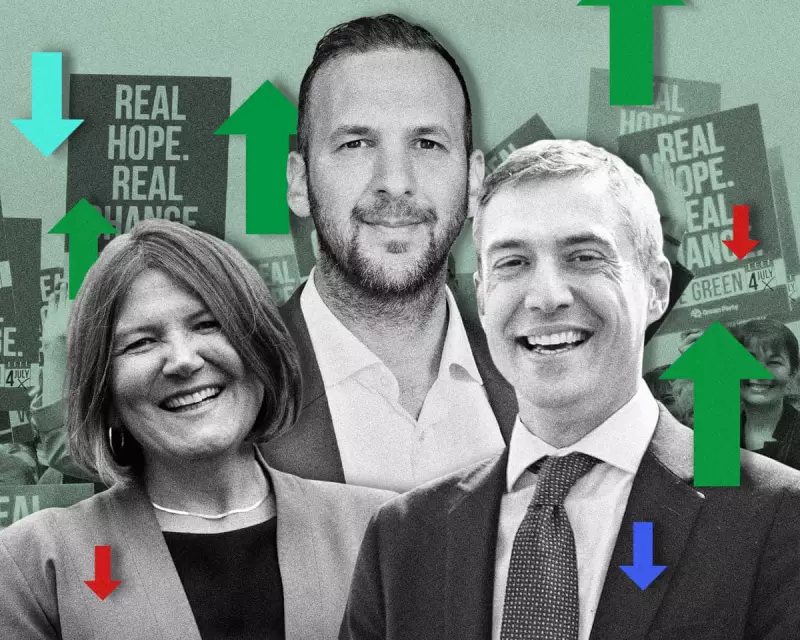
The Green Party of England and Wales stands at a critical crossroads, with an intense leadership contest unfolding that will determine the party's direction for years to come. The upcoming election represents more than just choosing new figureheads—it's a fundamental debate about how the party navigates its recent electoral successes while staying true to its core environmental principles.
Three Visions, One Party
The leadership race has revealed three distinct factions within the party, each advocating for a different strategic approach. The tension between pragmatic electoral politics and unwavering environmental activism has created a fascinating dynamic that could redefine British green politics.
The Establishment Choice
Current co-leaders Carla Denyer and Adrian Ramsay represent continuity and experienced leadership. Having steered the party through its most successful general election performance, they argue for maintaining the course that delivered four parliamentary seats and their highest-ever vote share. Their platform emphasises building on recent gains while pushing their influential 'Wimbledon Effect' strategy—concentrating resources on winnable constituencies.
The Radical Alternative
Challenging the status quo, former co-leader Siân Berry and activist Rosi Sexton advocate for a return to the party's activist roots. They argue that recent successes have come at the cost of diluting the Green Party's radical environmental message. Their campaign focuses on bolder policies, including a more aggressive approach to wealth redistribution and climate action that doesn't shy away from difficult conversations about economic transformation.
The Middle Ground
Environmental journalist Tina Rothery and NHS worker Martin Hemingway position themselves as the unity candidates, seeking to bridge the gap between pragmatism and principle. They acknowledge the need for electoral strategy while emphasising that the climate crisis demands more ambitious policies than incremental change.
The Strategic Dilemma
At the heart of this leadership contest lies a fundamental question: should the Greens prioritise electoral growth or ideological purity? The party's unprecedented success in the recent general election—while still falling short of breakthrough numbers—has intensified this debate. Some members worry that pursuing mainstream appeal risks compromising the urgent environmental message that defines the party.
Beyond Environmentalism
The leadership debate has expanded to include contentious issues like the conflict in Gaza, economic policy, and the party's relationship with social movements. This reflects the broader challenge facing the Greens: how to maintain their environmental focus while addressing interconnected issues of social justice and international affairs.
The Stakes for British Politics
With the next general election potentially years away, the new leadership will have significant time to shape the party's direction. Their approach could determine whether the Greens consolidate their recent gains or revert to being a peripheral protest movement. In an era of climate emergency and political volatility, the outcome of this internal contest may have implications far beyond the party itself.
The membership's decision, to be announced on September 27th, will signal whether the Greens see their future as pragmatic players within the political system or as uncompromising advocates for radical environmental change.





